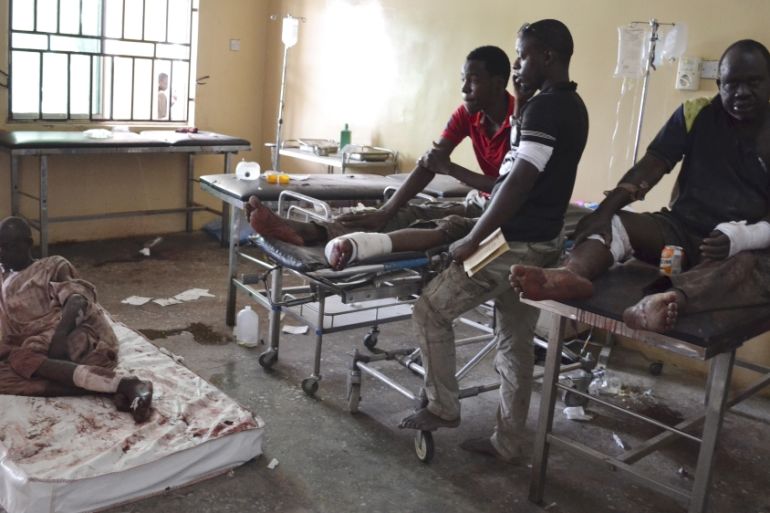Multiple suicide blasts rock Nigeria’s Maiduguri
Four suicide bombers blow themselves up in Ajilari Cross area of the city, killing at least 10 people and wounding 39.

At least 10 people have been killed and 39 others injured when four suicide bombers blew themselves up in the city of Maiduguri, northeast Nigeria, the military has said.
The attacks on Thursday night targeted the Ajilari Cross area of the city, near Maiduguri airport and a military base, the army said on Friday.
Keep reading
list of 4 itemsTen years after ‘Bring Back Our Girls,’ Nigeria’s kidnappings continue
Why mass kidnappings still plague Nigeria a decade after Chibok abductions
Children kidnapped in northern Nigeria have been freed
“Three of the terrorists [struck] in the same area and the fourth detonated in front of a mosque,” according to the military headquarters in Abuja.
Locals and one police officer in the Borno state capital said initially there were seven blasts in the Ajilari Cross area of the city, with at least two bombs strapped to teenage girls.
According to the military, the attackers were members of the Boko Haram armed group.
Targeting civilians
Boko Haram group have increasingly used suicide bombers to target civilians, including in Maiduguri, where on September 20, at least 117 people were killed in a wave of attacks.

Ajilari Cross was one of several places in the city also hit 10 days ago, spreading fears of more carnage over the recent Islamic holiday, Eid al-Adha.
Nigeria’s military has claimed a series of successes against Boko Haram in recent weeks, which has led many to fear an increase in attacks against civilians in the restive northeast.
Amnesty International said on Wednesday more needed to be done to protect ordinary citizens, with at least 1,600 killed in Boko Haram violence in Nigeria, Cameroon, Chad and Niger since June.
The conflict has claimed more than 1,260 lives in Nigeria alone since Muhammadu Buhari took office as president on May 29, according to an AFP news agency tally.
At least 17,000 people have been killed – 3,500 of them this year, according to Amnesty – and more than 2.5 million made homeless since the Boko Haram attacks began in 2009.